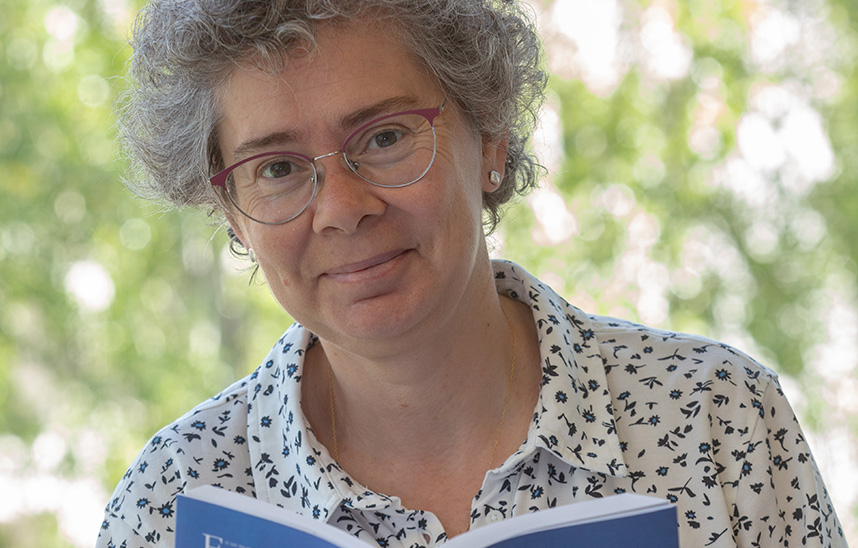The theater group ATLANTES premieres 'Cicely and David', a play about the origin of palliative care.
David Clark's play, which is being produced in Spanish by ATLANTES Global Observatory of Palliative Care of the University of Navarra, will be performed at Civivox Iturrama on March 13.

04 | 03 | 2024
The story of Cicely Saunders, a pioneer in palliative care, brought to the theater by David Clark, will come to Civivox Iturrama in Pamplona on March 13 (7 p.m.). It will do so by the hand of the theater group of ATLANTES Global Observatory of Palliative Care of the Institute for Culture and Society (ICS) of the University of Navarra. The premiere of Cicely and David, whose translation into Spanish for the first time has promoted this group, will take place during the XXVI University Theater Fortnight. The project is supported by the Pía Aguirreche Foundation and tickets are sold out.
With this project, ATLANTES, which celebrates its tenth anniversary, seeks to expand the project initiated by Clark, Professor Emeritus of Sociology at the University of Glasgow and biographer of Saunders, to bring it closer to the Spanish-speaking public. "This work not only seeks to pay tribute to our pioneer, but also to tell the story of modern palliative care and its evolution in a broad and accessible way," explains predoctoral researcher Alicia Hernando-Garreta, who has led the project.
For the team, the translation challenge was coupled with facing their first theatrical project . To prepare, they participated for six months in the University of Navarra Museum's Theatrical training Plan, where they acquired skills in directing, producing and acting and also received logistical support. "The decision to involve palliative care professionals in the performance rather than using professional actors added complexity, as the performance involved ensuring that the interpretation adequately conveyed the values and spirit of palliative care," she says.
A window to listening, empathy and compassion
The result is a play that "offers a window into the fundamental values of palliative care, highlighting the importance of attentive listening, empathy and compassion in the care of patients at status of serious illness. And theater is presented as an ideal vehicle to convey them: "Through the authenticity of the theatrical performance, the audience can enter into the experience of those facing the end of life and those who accompany them on this journey," says the researcher.
The play, told in scenes that travel between 2005 and 1947, tells the story of the relationship between Saunders and David Tasma, a Polish immigrant suffering from cancer at St. Christopher's Hospice in London. Through this story, he explains, a "profound reflection on the nature of human suffering and the importance of emotional and spiritual support in difficult times" is offered. In this sense, he emphasizes that the universality of the themes addressed, such as illness, death and hope in the face of human suffering, "transcends age and profession and reaches anyone interested in the complexities of the human condition and care."




